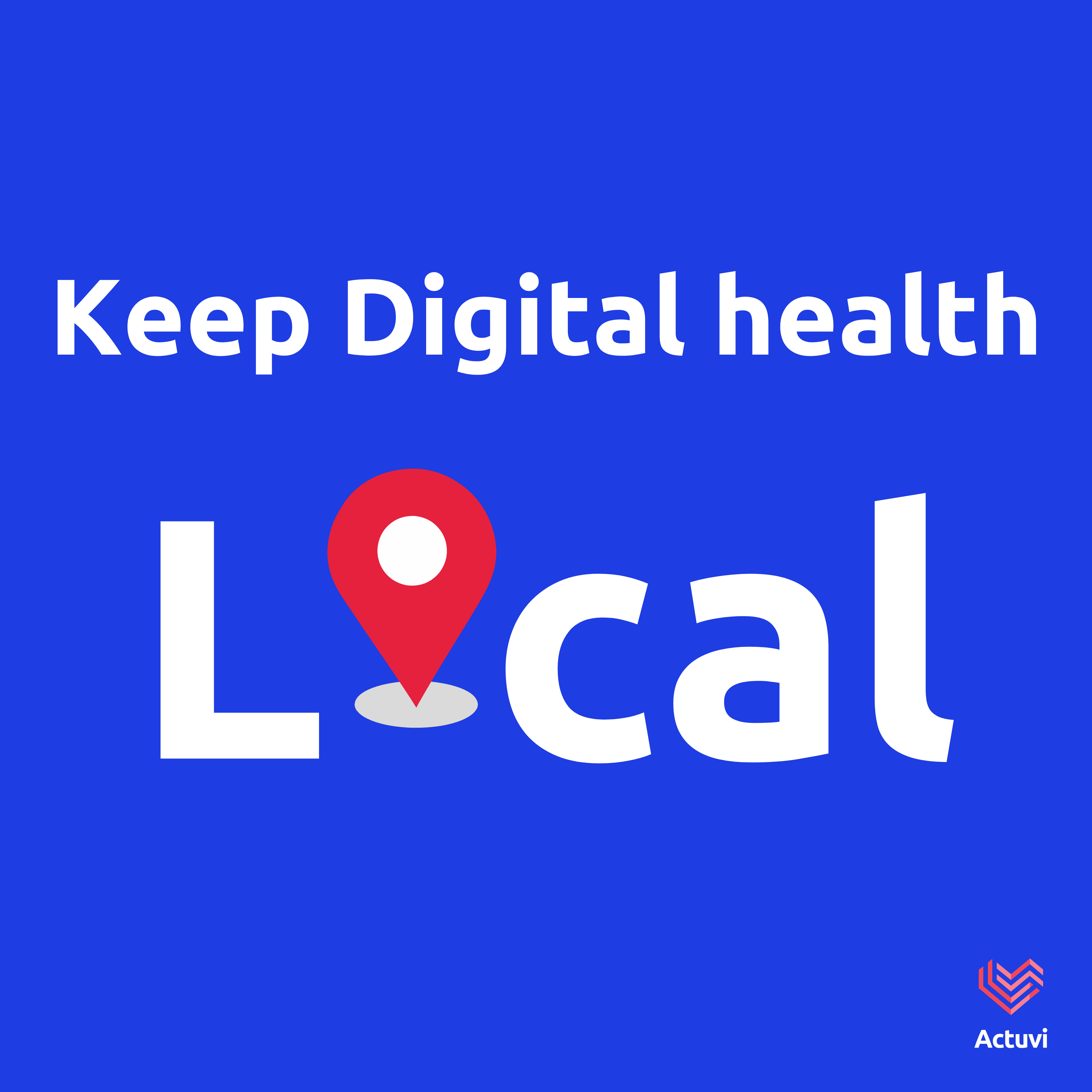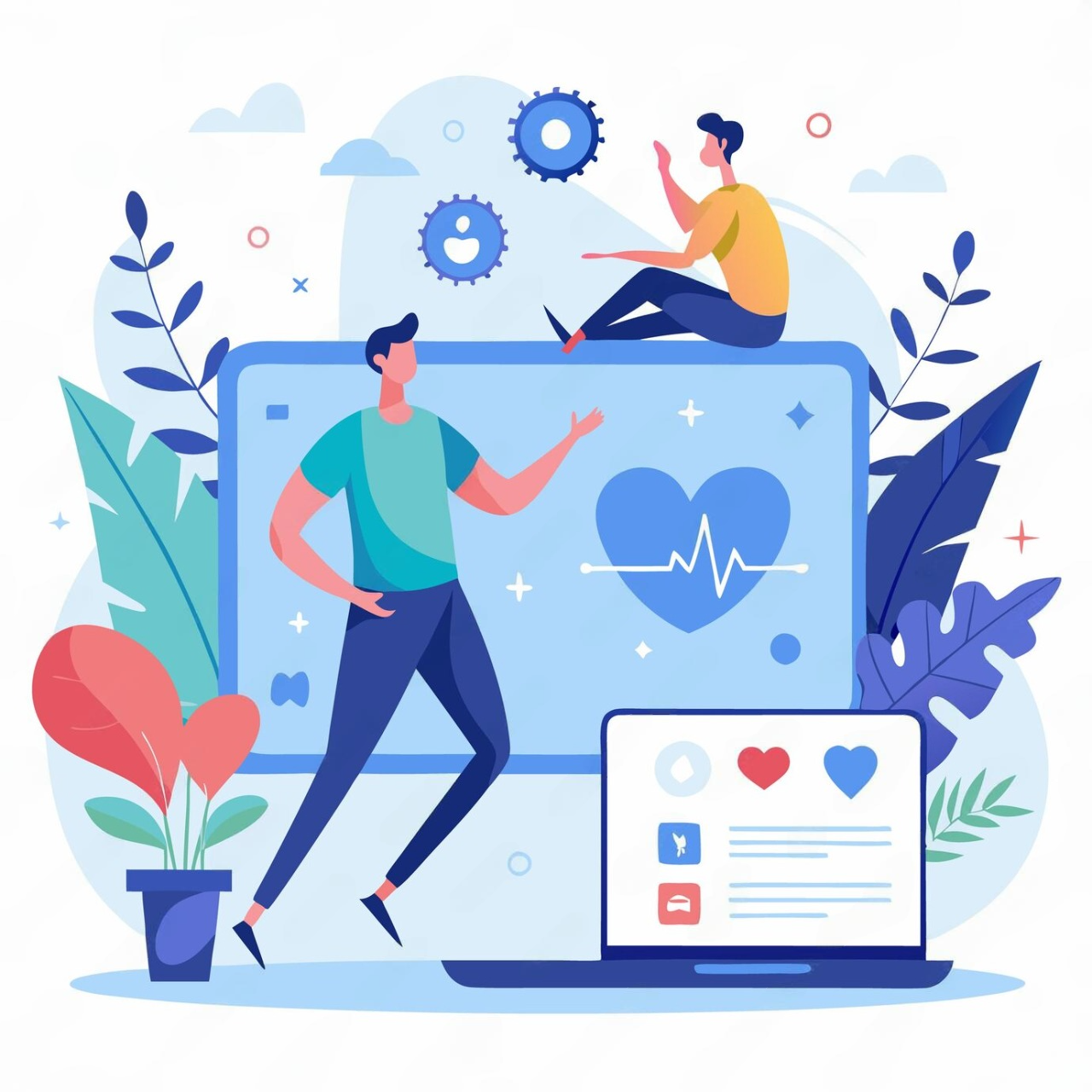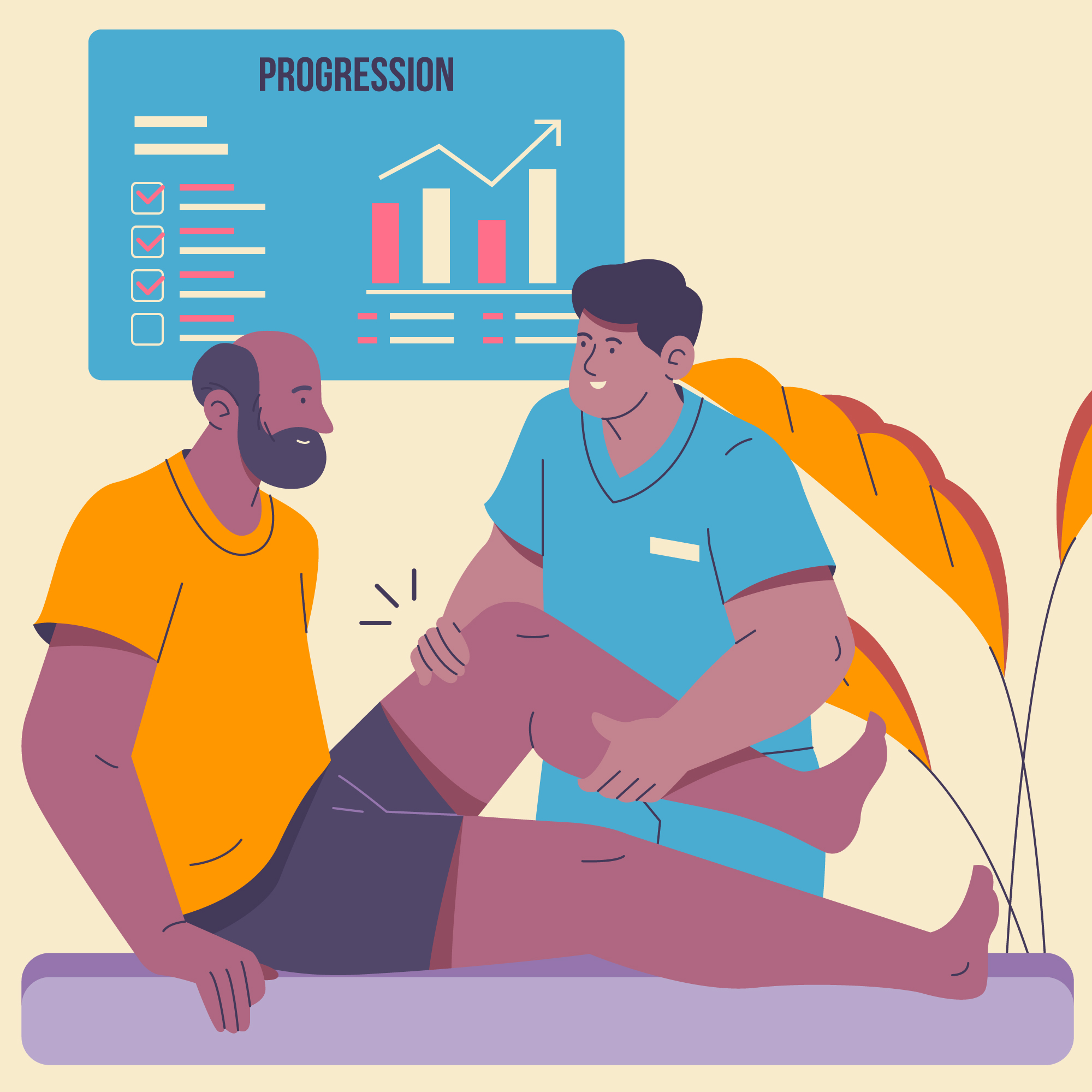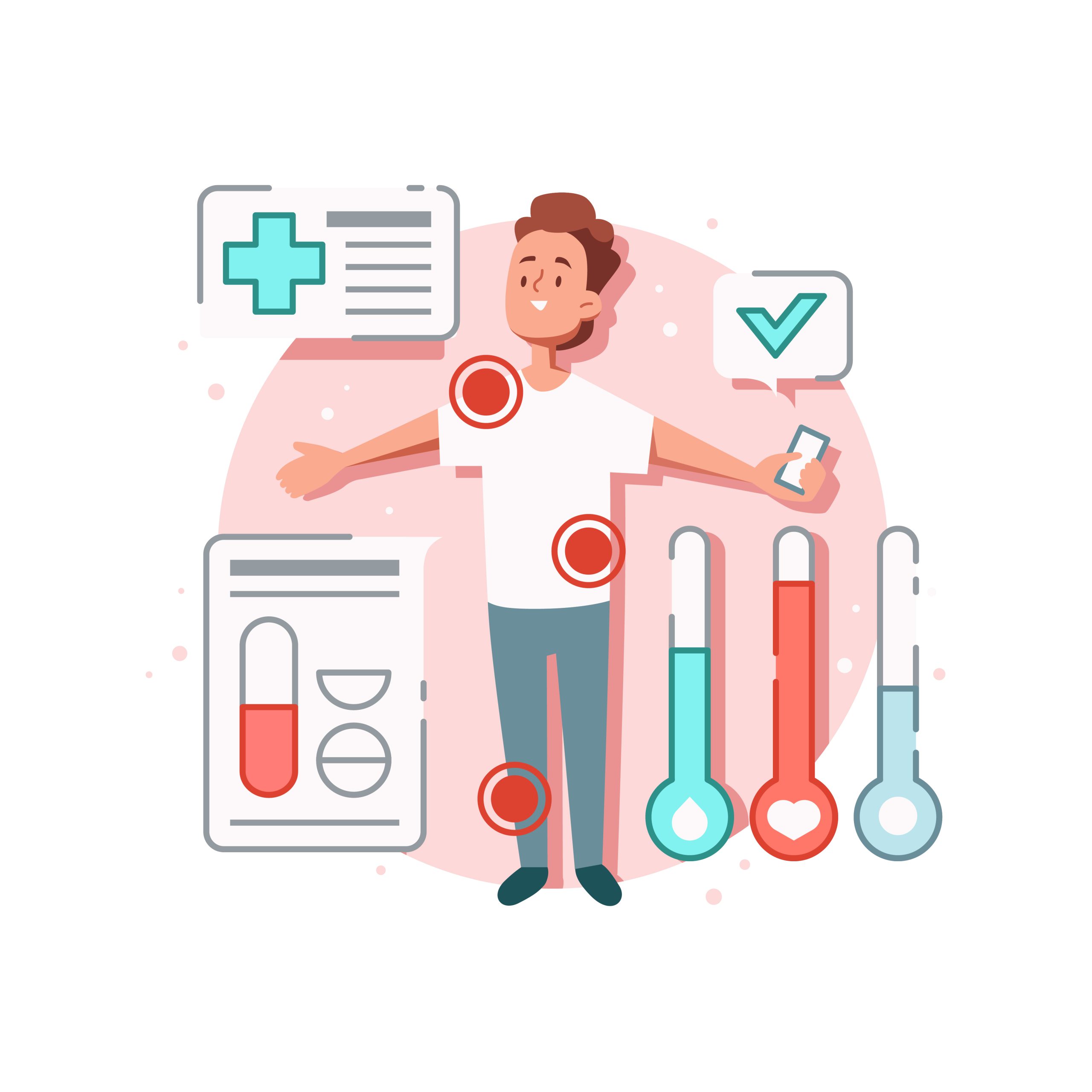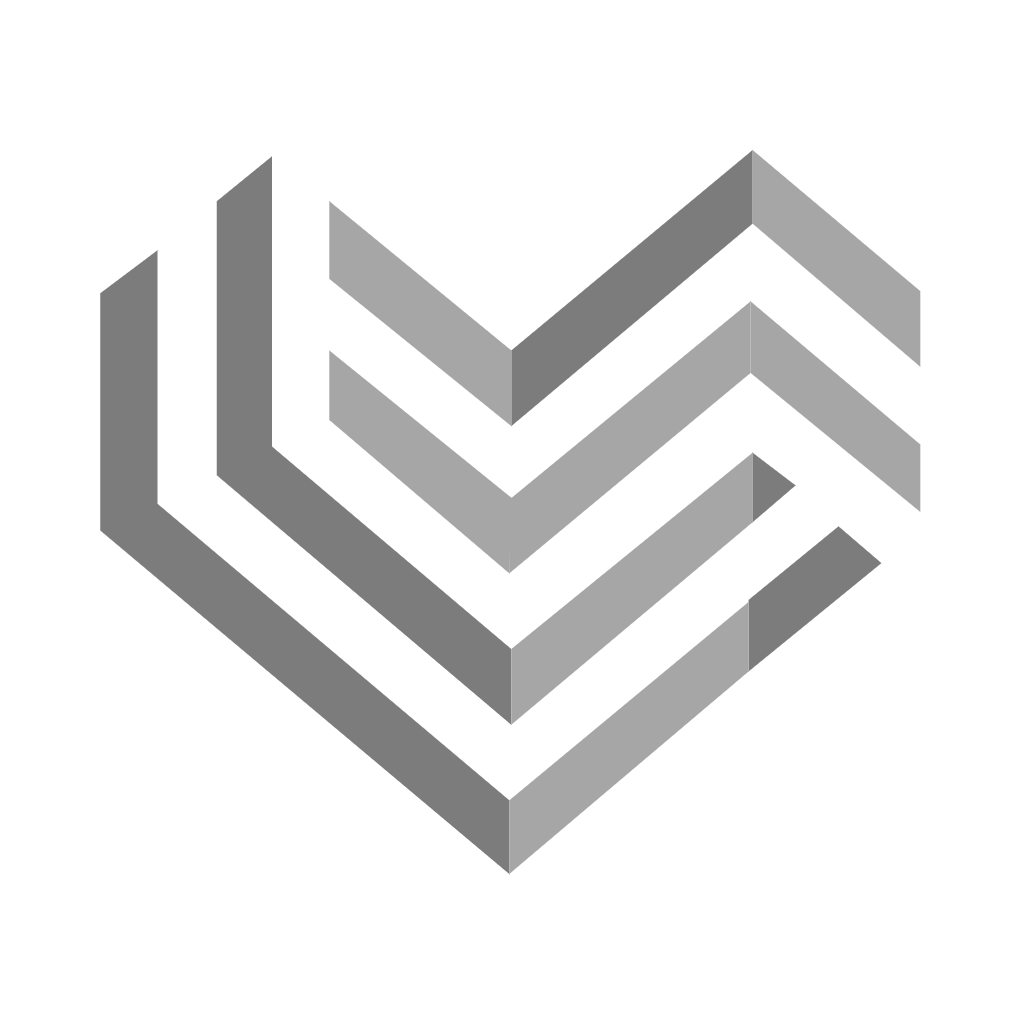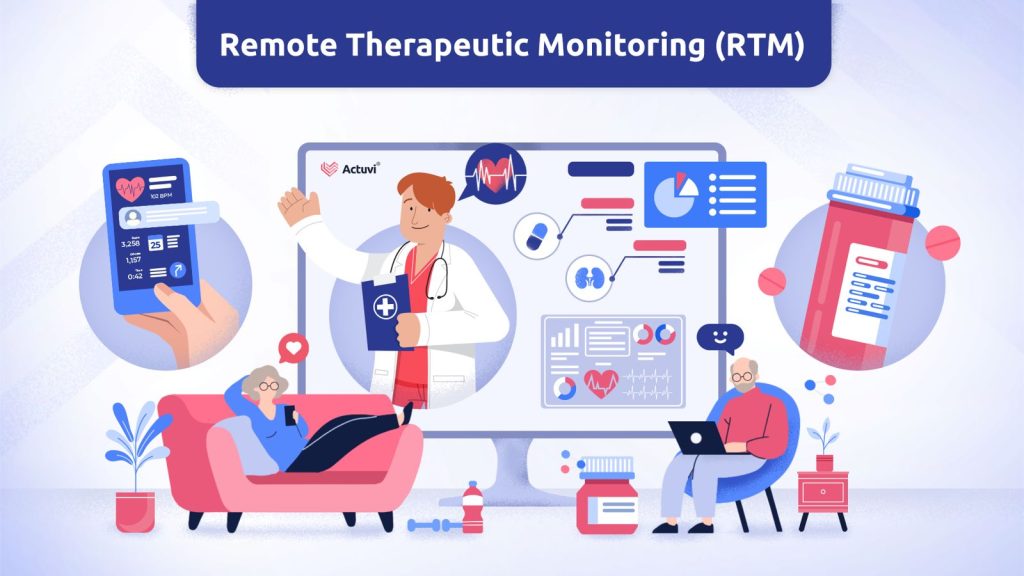
Remote therapeutic monitoring (RTM) is a way to use technology to track a patient’s health status and treatment progress remotely. RTM can help healthcare providers develop more accurate care plans and improve patient outcomes by gathering real-time data on treatment adherence, pain levels, and mental health conditions. It can be applied for musculoskeletal respiratory and Cognitive Behavioral Therapy (CBT) conditions, helping clinicians better understand and manage each patient’s unique needs.
How Does RTM Work?
Patients usually use a connected medical device to collect and transmit data. They can also self-report details, which healthcare providers then review to track adherence and monitor progress.
This process begins when a healthcare provider prescribes a compatible device or digital app that records information on pain levels, therapy sessions, or medication use. For CBT, patients might input subjective data about their mood or complete small tasks assigned by therapists. The system securely transmits this information to the care team, who can quickly notice if a treatment is effective and make quick adjustments when needed. Here’s the official update from CMS on RTM billing – https://www.cms.gov/files/document/r11118cp.pdf.
What Data Does RTM Collect?
RTM collects musculoskeletal or respiratory function data and helps track mental health parameters, including CBT progress and therapy adherence.
For musculoskeletal or respiratory care, devices might log exercise frequency, medication use, or breathing exercises. With CBT, patients may be prompted to self-report mood changes or document anxiety levels. This variety allows providers to see how each aspect of care affects the patient’s progression and ensures that no important details slip through the cracks.
Who Can Use RTM?
Qualified healthcare providers (QHPs), such as physical, occupational, and respiratory therapists, physicians, and physician assistants, can all use RTM.
Different specialists gain unique benefits from RTM. Physical and occupational therapists can track exercise adherence and prevent patient setbacks at home. Respiratory therapists can examine inhaler use and respiratory improvement. Therapists and psychologists who guide CBT sessions can also gain valuable insights into how patients engage with therapy assignments, enhancing the overall quality of mental health treatment.
Benefits of RTM
RTM leads to better patient-provider relationships and frees clinicians to focus on more urgent or complex cases. It also helps create more accurate care plans.
By analyzing consistent data from remote monitoring, clinicians can be proactive about patient care. This deeper insight allows them to adjust treatments based on real-world observations rather than waiting for the next in-person appointment. It also removes many logistical hurdles, giving both patient and provider a flexible approach to healthcare. With more time to handle complex or critical situations, clinicians can dedicate their efforts where it matters most.
Examples of RTM
There are various RTM solutions available. Some track medication usage, while others focus on exercises and therapy sessions. Below are three valuable platforms.
1. Actuvi App and Web Portal
Actuvi’s RTM program works with all specialties and enables you to create custom assessments and monitoring tracks, helping you monitor your patients’ treatment responses, medication adherence, and more—all while generating new revenue.
2. PatchRx Smart Pill Bottle Cap
This device ensures that patients remember to take their medications. It tracks each pill bottle opening, creating an automatic log for providers. By understanding a patient’s medication adherence, clinicians can match the right interventions with the patient’s day-to-day routine.
3. My Rehab Pro Mobile App
My Rehab Pro offers RTM for musculoskeletal conditions through a mobile app with exercise videos and progress-tracking tools. Patients can log completed exercises and report pain levels, giving their care team a clear view of progress between therapy sessions.
RTM has transformed how patients and providers stay connected. It offers a simple but powerful avenue for capturing important health data—whether it’s musculoskeletal, respiratory, or CBT-related. If you are interested in bringing RTM to your practice, Actuvi is here to help you. You can talk to our Digital Care Specialist today to integrate remote therapeutic monitoring into your practice and enhance your patient care – https://outlook.office365.com/book/ActuviDemo@actuvi.com/.

